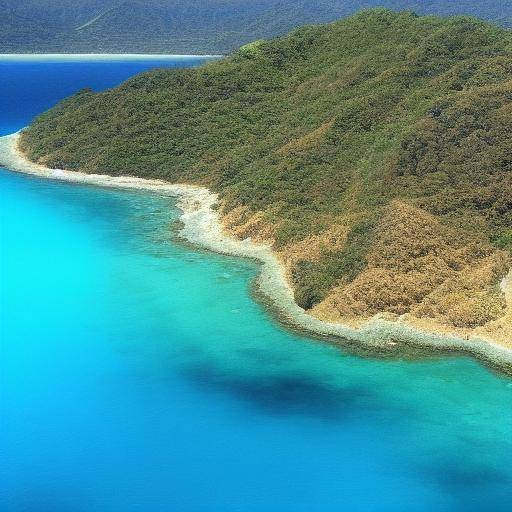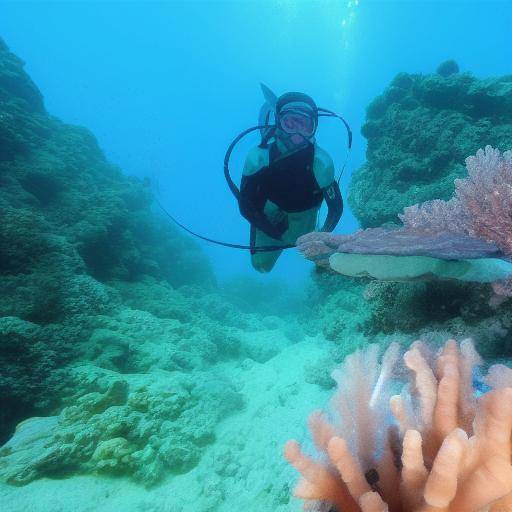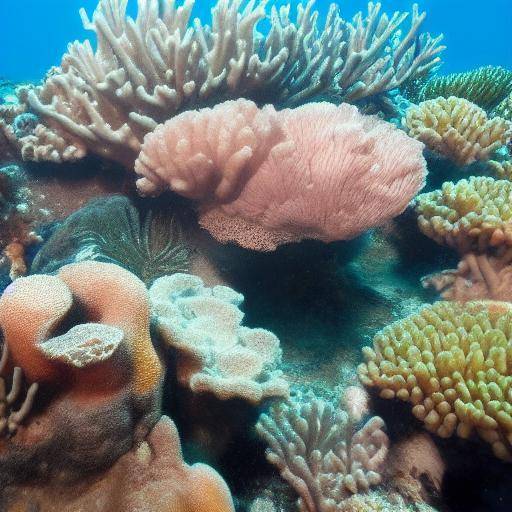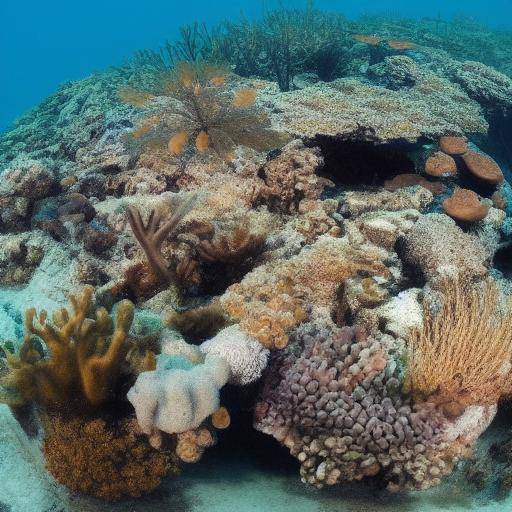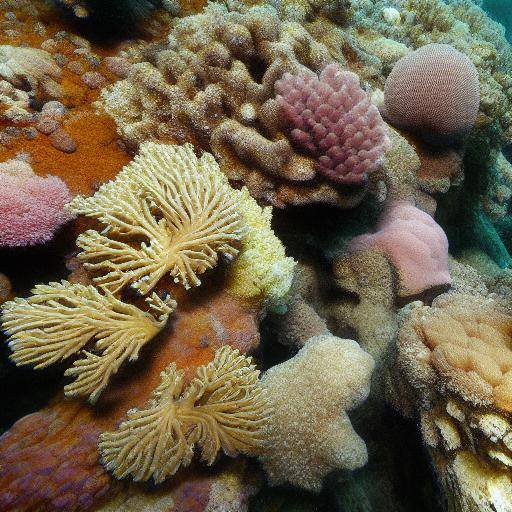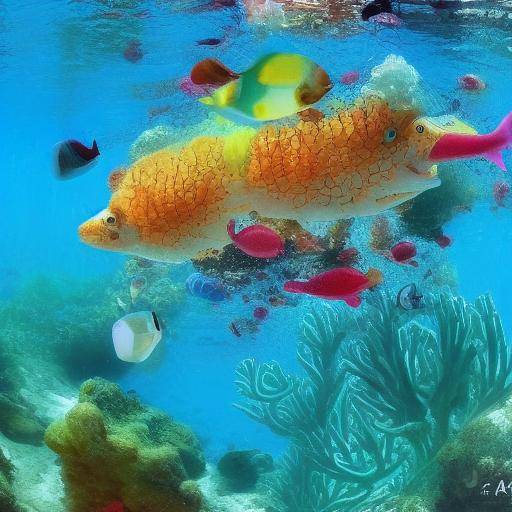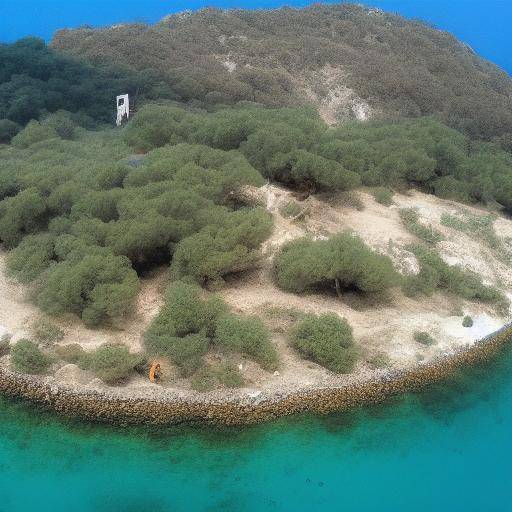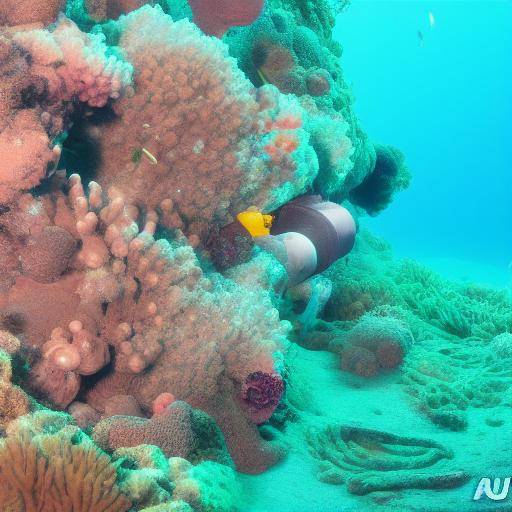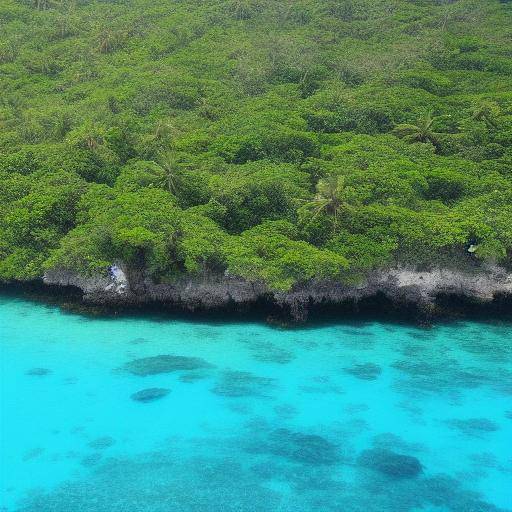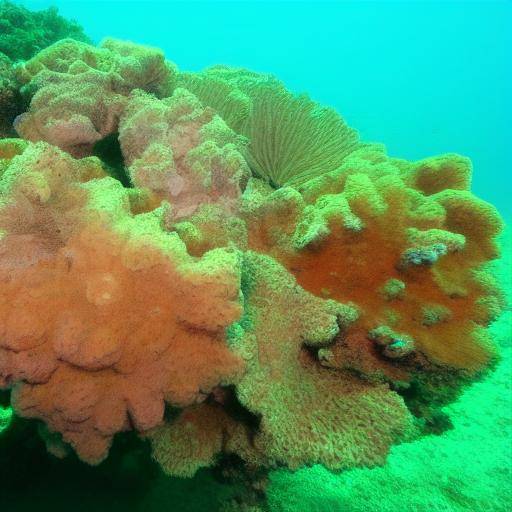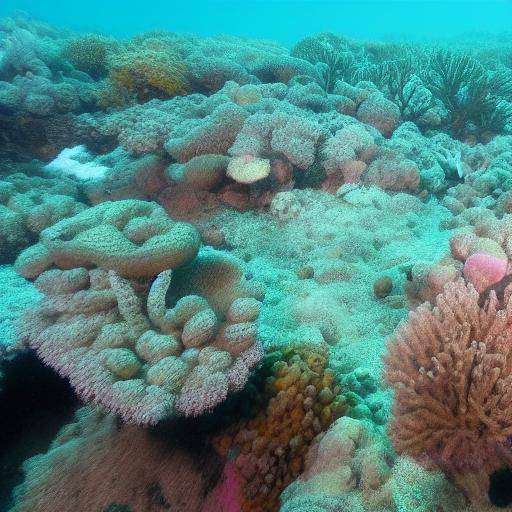
The Great Barrier of Coral is one of the most impressive natural treasures on our planet. Located off the coast of Queensland, Australia, this underwater marvel is not only an impressive visual spectacle, but also plays a vital role in marine ecology. In this article, we will explore the history, ecological importance and conservation initiatives surrounding the Great Barrier Reef, as well as its relevance to Australia.
Introduction
The Great Barrier Reef, declared a World Heritage Site by UNESCO, is the world's largest coral reef system and one of the most diverse and complex ecosystems that exist. Extending over more than 2,300 kilometres, it is home to countless marine species, many of which are endemic in this region. In addition, it is a world-renowned tourist attraction that attracts visitors from all over the world, contributing significantly to the local and national economy.
History and Background
The history of the Great Barrier of Coral dates back to thousands of years, when the slow growth of corals formed the reefs we know today. Throughout the centuries, the indigenous peoples of Australia have maintained a close relationship with this natural wonder, incorporating it into their myths, fishing practices and traditions. However, the arrival of European colonizers brought negative impacts on the marine ecosystem, from overexploitation of resources to pollution.
In recent decades, the Great Barrier of Coral has faced significant challenges related to climate change, ocean acidification, pollution and mass tourism. In response to these threats, various conservation and sustainable management measures have been implemented to preserve and restore the health of coral reefs.
Analysis in Deep
The importance of the Great Barrier of Coral transcends its aesthetic value. This ecosystem plays a crucial role in coastal protection, climate regulation, income generation through ecotourism and the sustainability of local fisheries. However, anthropogenic pressures and extreme natural events have exerted considerable pressure on their fragility.
At the international level, the Great Barrier of Coral has been an issue of interest on the part of the scientific community and environmental defenders, who seek to raise awareness of their importance and advocate for their protection. Conservation initiatives, ongoing research and environmental education play a key role in preserving this marine gem.
Full review
The role of Australia as a custodian of the Great Barrier Reef is of great importance, as the country is responsible for protecting this natural heritage for future generations. Government efforts, marine conservation policies and international partnerships have contributed to the preservation of the Great Barrier Reef, and innovative strategies have been implemented to address existing challenges.
Comparatively, marine ecology in other regions of the world faces similar dilemmas, which underlines the need for coordinated global action to protect and restore marine ecosystems. The exchange of knowledge, technologies and best practices between different countries and organizations plays a vital role in strengthening marine ecology at the global level.
Practical Tips and Accessible Tips
While the conservation of the Great Barrier of Coral requires large-scale action, even individuals can play a crucial role in their protection. Reducing plastic consumption, supporting sustainable tourism initiatives, educating yourself on marine life and participating in beach cleaning activities are some of the ways people can contribute to the preservation of this precious ecosystem. By cultivating greater understanding and appreciation for marine ecology, more responsible behaviours can be encouraged that benefit the oceans and their inhabitants.
Industry Perspectives and Expert Reviews
The experts in marine ecology and environmental conservation offer a valuable insight into the challenges facing the Great Barrier Reef and the measures necessary to protect it. Their expertise and critical analysis support informed decision-making and promote effective strategies to ensure the long-term sustainability of this vital ecosystem.
Case Studies and Real Life Applications
Over the decades, many projects and programs have been developed that highlight the successes and challenges in the conservation of the Great Barrier Reef. These case studies offer practical perspectives on policies, technologies and management strategies that have proven to be effective, shedding light on lessons learned and opportunities for improvement.
Future Trends and Predictions
As we move forward, there is a need to address future risks and prepare for the challenges facing marine ecology. Emerging trends in marine conservation, the development of innovative technologies and climate projections provide a vision of what we can expect and how to adapt to protect our valuable marine ecosystems.
Conclusions and FAQs
In short, the Great Barrier of Coral is an impressive natural treasure that deserves our attention and care. From its rich history to its current and future challenges, this vital ecosystem reminds us of the interconnection between humanity and nature, calling us to assume an active role in its conservation.
Frequently asked questions
**1. What is the economic importance of the Great Barrier Reef for Australia?**The Great Barrier of Coral contributes significantly to the Australian economy through tourism, fishing and coastal protection, generating employment and investment opportunities in the region.
**2. How can climate change affect the health of the Great Barrier Reef?**Climate change, in particular the increase in water temperature and ocean acidification, poses a serious threat to the health of coral reefs, causing bleaching and deterioration of the ecosystem.
**3. What measures are being taken to protect the Great Barrier Reef?**Various measures are being implemented, including marine protected areas, water quality monitoring programmes, fishing restrictions and the promotion of sustainable tourism, among others.
**4. How can the international community contribute to the conservation of the Great Barrier Reef?**International cooperation in research, finance, knowledge-sharing and technology is key to addressing the global challenges facing the Great Barrier Reef.
**5. What is the impact of coastal development on the Great Barrier of Coral?**Coastal development can cause water pollution, habitat destruction and disruption of natural coral ecosystem patterns, which threatens their long-term health.
**6. What individual actions can be taken to support the conservation of the Great Barrier of Coral?**Reducing the use of plastics, supporting ecotourism, participating in beach cleaning activities and educating on the importance of marine conservation are some ways in which individuals can contribute to protecting this ecosystem.
In conclusion, the Great Barrier of Coral is not only an invaluable natural treasure, but also a key indicator of the health of our oceans. With collaborative efforts and continuous commitment, we can work towards a future in which the Great Barrier of Coral, Australia and marine ecology generally flourish and prosper for generations to come.

